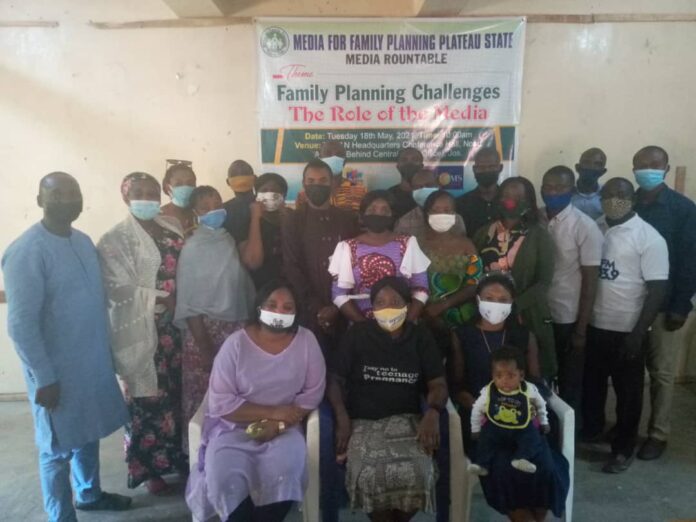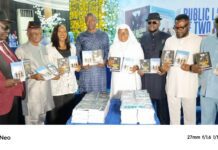A cross section of members of Media for Family Planning in Plateau State.
By Marie-Therese Nanlong
Jos – Journalists in Plateau State under the aegis of Media for Family Planning have been charged not to relent in their efforts at bringing to the public domain issues that would promote the uptake of child birth spacing and curb maternal mortality rate in the State.
The journalists at a day roundtable on the topic, “Family Planning Challenges: Role of the Media in Plateau State”, held at TEKAN headquarters in Jos, were urged to see themselves as family planning advocates who promote the wellbeing of families.
Speaking at the event, the State media focal person of Development Communications, DevComs Network, Wika Gofwen reiterated the objective of the discussions was to have “an in-depth and robust deliberations on the role of the media towards addressing the challenges of family planning in order to put issues in the right perspective.”
READ : Against Governor Emmanuel’s claim, ‘we are owed four years leave grant’ – NULGE
Also, the State Coordinator of The Challenge Initiatives, TCI, Philemon Yohanna, who commended the efforts of the group at promoting issues of family planning; challenged them to take their commitments further especially as issues of self-sustainability will soon take centre stage.
Discussants including the General Manager, Plateau Publishing Company, Boniface Gwotbit represented by a former State Chairman of NUJ, Katdapba Gobum, Zonal Director, News Agency of Nigeria, Abdullahi Yusuf represented by a staff, Martha Agas, Suleiman Hassan who represented the General Manager Unity FM/TV and Friday Bako, a Senior Reporter with Viewpoint Nigeria contributed on how journalists can play effective roles in promoting family planning.
Gobum called for appropriate choice of words in writing and mastery of one’s beat to be able to give sound, credible, factual and timely information to the society, stating, “Journalists must be conversant with the terminologies used in respect to specific issues under consideration else the report will end up confusing the public.”
Bako added that since the society depends on the media for information, and the media being an intermediary between the health experts and the public it is necessary to report the extent of challenges, progress on health facilities, and simplify the terminologies used in the childbirth spacing for the understanding of the common man.
RELATED STORY: Poor funding limits access to family planning services in Plateau State
Hassan from Unity FM/TV also pointed out that religion and culture have been sources of challenges towards child birth spacing in some communities but insisted that culture is dynamic hence the need for media to educate people in order to dispel myths and misconception that “childbirth spacing is against a certain religion and therefore, it’s a subtle way to control population.”
He called for the effective engagement of religious and community leaders as child birth spacing has economic and societal benefits.
















